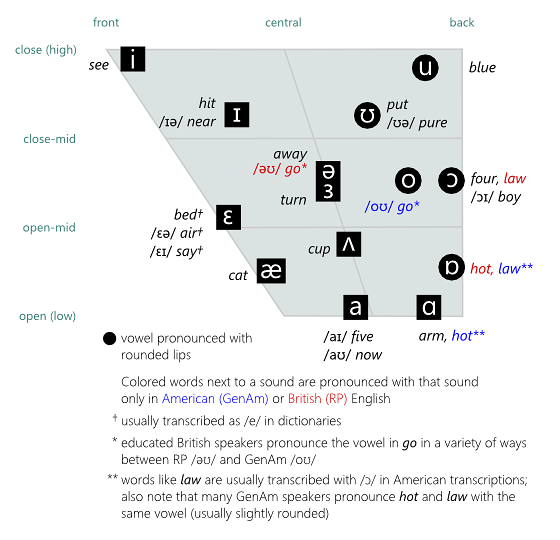 |
| Intonation in real life |
Did you enjoy your holidays?
This time I want to give you some information on an important aspect of spoken English: Intonation. Knowing how to stress a sentence will help immensely when trying to sound like a native speaker. As I am aiming for an American English accent, I will focus on American English intonation. Sorry to all the British-enthusiasts.
The example from this site shows the impact of intonation on the meaning of a sentence. Each one of these seven sentences implies a different meaning.
1. I didn't say he stole the money.
2. I didn't say he stole the money.
3. I didn't say he stole the money.
4. I didn't say he stole the money.
5. I didn't say he stole the money.
6. I didn't say he stole the money.
7. I didn't say he stole the money.
So, you're sure about the meaning? Then check if you are right:
1. I didn't say he stole the money, someone else said it.
2. I didn't say he stole the money, that's not true at all.
3. I didn't say he stole the money, I only suggested the possibility.
4. I didn't say he stole the money, I think someone else took it.
5. I didn't say he stole the money, maybe he just borrowed it.
6. I didn't say he stole the money, but rather some other money.
7. I didn't say he stole the money, he may have taken some jewelry.
Despite expressing a certain meaning by using appropriate intonation, the speaker can also state their opinion, attitude and mood by raising and lowering their voice. Talking in a monotonous voice, for instance, delivers a different message than enthusiastically stressing every second word. In the image above, you can see how the girl expresses annoyance and the parents happiness through intonation.
Until now, stressing the right words doesn't sound too difficult, eh? The problem is, though, that there are aspects of intonation that are not the same or at least similar in different cultures. German intonation differs from the Austrian and so does the British as well as the American intonation.
This is the reason why it may be useful to set up some rules for American English intonation:
1) If you give your listeners new information, i.e. if you say something for the first time, stress the noun. Whenever you can't decide which word you actually want to stress, just go with the noun because nouns are substantial and usually carry new information.
2) If you repeat some or all of the words you said, put the stress wherever you want it, to express a certain meaning or your attitude, except for:
3) Compound nouns. Here, stress the adjective. It is a white house but not the White House.
4) Last but not least, there are a few intonation patterns. Remembering (and using) the most important ones will definitely improve your spoken English skills.
Statements
If stating something glide down with your voice at the end of the sentence.
Listings
If listing something, raise and lower your voice with every word listed, only gliding down at the last one.
Samuel likes pizza, tacos, spaghetti, hamburgers, and hot dogs.
(Hot dog is a compound noun, this is why the hot has to be stressed.)
Closed questions
The first word is stressed. Your voice should glide up at the end and stretch the last word.
May I use the bathroom?
Open Questions / Wh - Questions
Stress the Wh-word and one or more important words in the middle of the sentence. No gliding up at the end!
What is your favorite memory from childhood?
Clarification questions
If you ask a clarification question, you usually are surprised. Step up after the wh-word and stay up.
Who are you talking about again?
Questions with options
Glide up at the first option and even more at the second.
Do you want to come at nine or ten? 
Tag Questions
The first part is treated like a statement. Step up at the first verb after the statement, stay up if you are uncertain about the answer to the question, glide down if you know the answer.
Susan ate, didn't she?
Of course, these intonation patterns and rules can vary with the situation. They can only be applied to general, spoken American English in a "normal", usual situation. Due to the size of the US, intonation could differ between regions and states. Nonetheless, using these intonation rules is not a mistake and will make you sound more like a native speaker of English.
Sources: http://www.americanaccent.com/intonation.html
http://www.vacuumsolutions.us/mirror2.php?url=http%3A%2F%2Fyoutube.com%2Fwatch%3Fv%3D3JCTywIDrVk&spfreload=10

